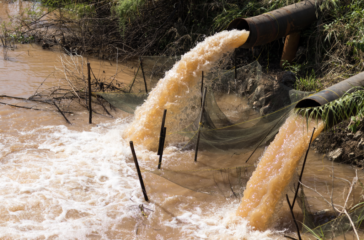“A national scandal” – new US climate funding could make water pollution worse
By Keith Schneider
The $369 billion Inflation Reduction Act was applauded by a chorus of US organizations and activists enthusiastic about the generous funding earmarked for projects designed to mitigate harmful climate change and improve environmental health.
But some researchers and activists are raising concerns that several provisions of the new law will actually worsen a growing environmental disaster in the nation’s heartland by increasing the tide of farm-related pollution washing into waterways and groundwater.
The sweeping new statute, which includes more than $140 billion in incentives designed to promote renewable fuels and cleaner electricity generation, aims to slash greenhouse gas emissions 40% below 2005 levels by the end of the decade. But in its efforts to promote climate-friendly agriculture, it also promotes corn-fed ethanol refineries and manure-based energy production that could unintentionally supercharge fertilizer and fecal contamination.
The Great Lakes and Midwest regions face nothing short of a water quality emergency, say those on the frontlines. Farming-related contaminants have already fouled thousands of drinking water wells from Minnesota to Missouri, and virtually every waterway in Iowa is degraded with little regulation to rein in the pollutants.
“It’s already a national emergency and a national scandal,” said Emma Schmit, senior organizer in the Midwest for Food and Water Watch, an environmental advocacy group. “When we test our waterways, the main pollutants are E.coli and nitrates and phosphorus from agriculture. These are pathogens and contaminants that can cause serious issues for people. We’re about to give large corporate farms carte blanche to make it worse.”
 EWG
EWG
